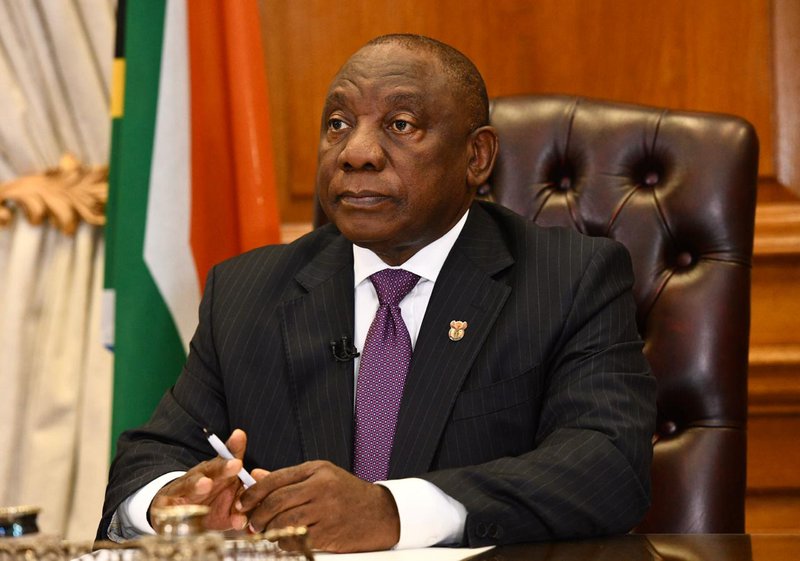The president has, in correspondence to the Speaker of the National Assembly, indicated that the Presidency has received a number of submissions opposing the signing into law of the two Bills.

President Cyril Ramaphosa.
Due to his concerns that the legislation governing the Copyright Amendment Bill and the Performers’ Protection Amendment Bill is open to constitutional challenge, President Cyril Ramaphosa has referred both bills back to the National Assembly.
This comes after the legislation was passed by parliament and referred to Ramaphosa for assent and signing into law.
“Among other provisions, the Copyright Amendment Bill seeks to accommodate visually impaired and otherwise print-disabled persons by introducing exceptions to the exclusive rights of authors or their assignees preventing the reproduction or copying of their work in any manner or form.
“Proponents of the exception contend that without such exception, visually impaired persons will have limited access to copyright literary works, as such works cannot be transcribed to braille and other formats for people who are print-disabled,” explained the presidency in a statement issued on Monday.
The statement also made reference to educators and librarians in pursuit of greater and easier access to works of all kinds.
“The broadening of access to content is aimed at increasing access to information and facilitating freedom of expression.”
According to the statement, the president has, in correspondence to the Speaker of the National Assembly, acknowledged the noble objectives of the amendments but also indicated to the Speaker that the Presidency has received a number of submissions opposing the signing into law of the two bills.
The primary reason for his concern is the fact that both bills have been incorrectly tagged ‘Section 75 Bills’ in terms of the constitutionally prescribed process for parliament’s processing of legislation.
Section 75 Bills are bills [that] do not affect the provinces.
“However, the President is of the view that the bills concerned are in fact Section 76 Bills, given that they affect cultural matters and trade – namely trade in copyright – in which provinces exercise competence. The Performers’ Protection Amendment Bill affected performances and performers of ‘traditional works’ including cultural expressions or knowledge, and the rights of these performances. It also regulates the manner in which such performances are made and shared,” added the presidency.
The Copyright Bill, in turn, affects cultural matters including indigenous work with an indigenous or traditional origin that is created by persons who are or were members of an indigenous community, and whose work is regarded as part of the heritage of such a community.
In terms of Schedule 4 of the Constitution, cultural matters and traditional leadership are among matters listed as affecting provinces and which have to be dealt with in Section 76 Bills.
The president also has reservations that several sections of the Copyright Amendment Bill may constitute retrospective and arbitrary deprivations of property in that copyright owners will be entitled to a lesser share of the fruits of their property than was previously the case.
Ramaphosa, therefore, submits that the uncertainty created this provision’s unlimited retrospective operation is unlikely to survive a constitutional challenge.
Substantial amendments made to various sections of the Bill – including Section 12A which deals with the fair use of a work or performance of a work – which were not subjected to public comment before the final version of the Bill was published also left the president feeling uneasy about the bill, according to the presidency.
“Other reservations cited by the President include copyright exceptions provided for in the Copyright Bill that may constitute arbitrary deprivation of property; may violate the right to freedom of trade, occupation and profession, and may be in conflict with the World Intellectual Property Organisation (WIPO) Treaty and the WIPO Performance and Phonograms Treaty, both of which South Africa subscribes to.”
READ NEXT: Blind SA takes Ramaphosa to court over Copyright Amendment Bill
(Compiled by Kaunda Selisho)
For more news your way, download The Citizen’s app for iOS and Android.
Download our app




